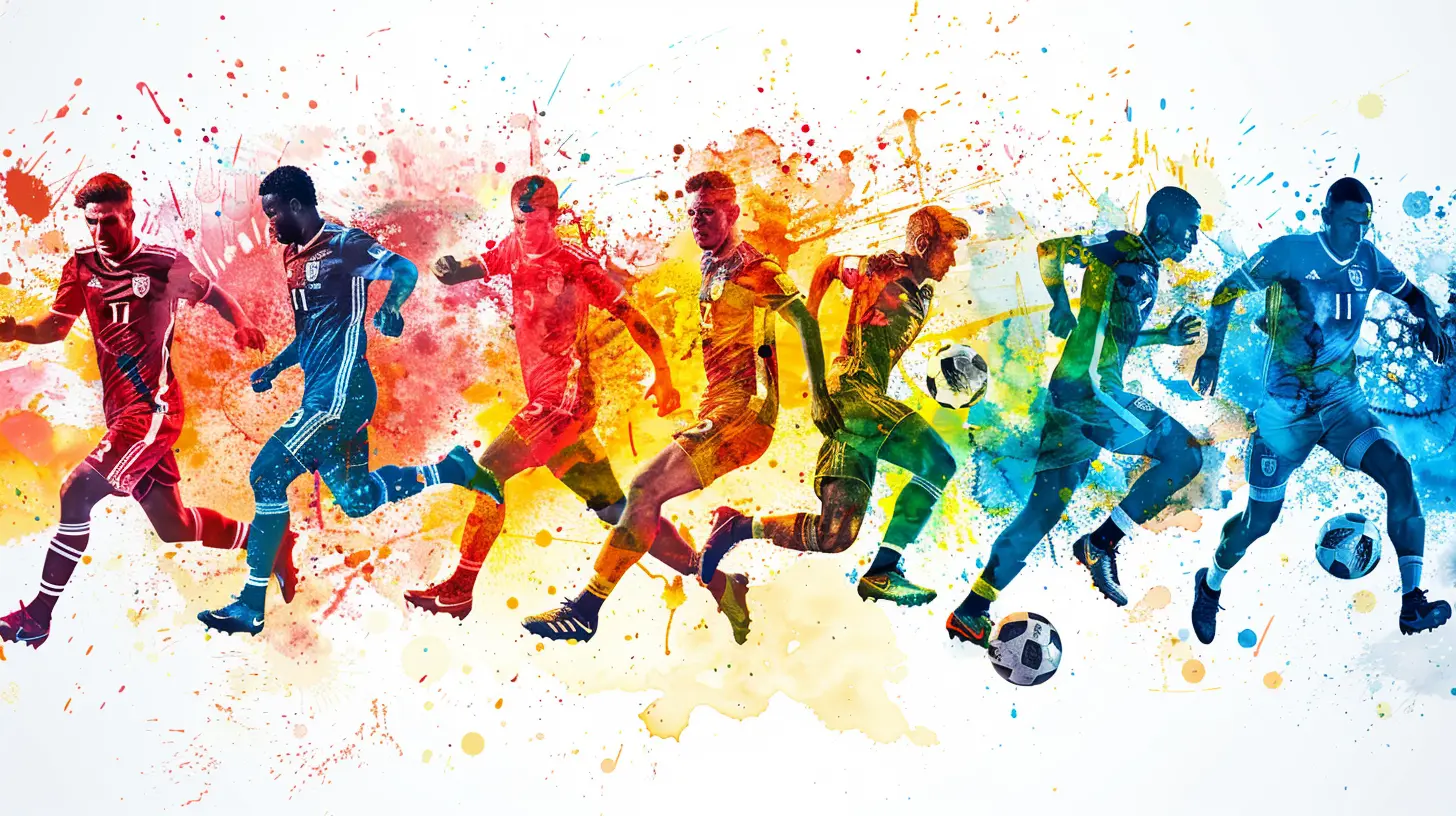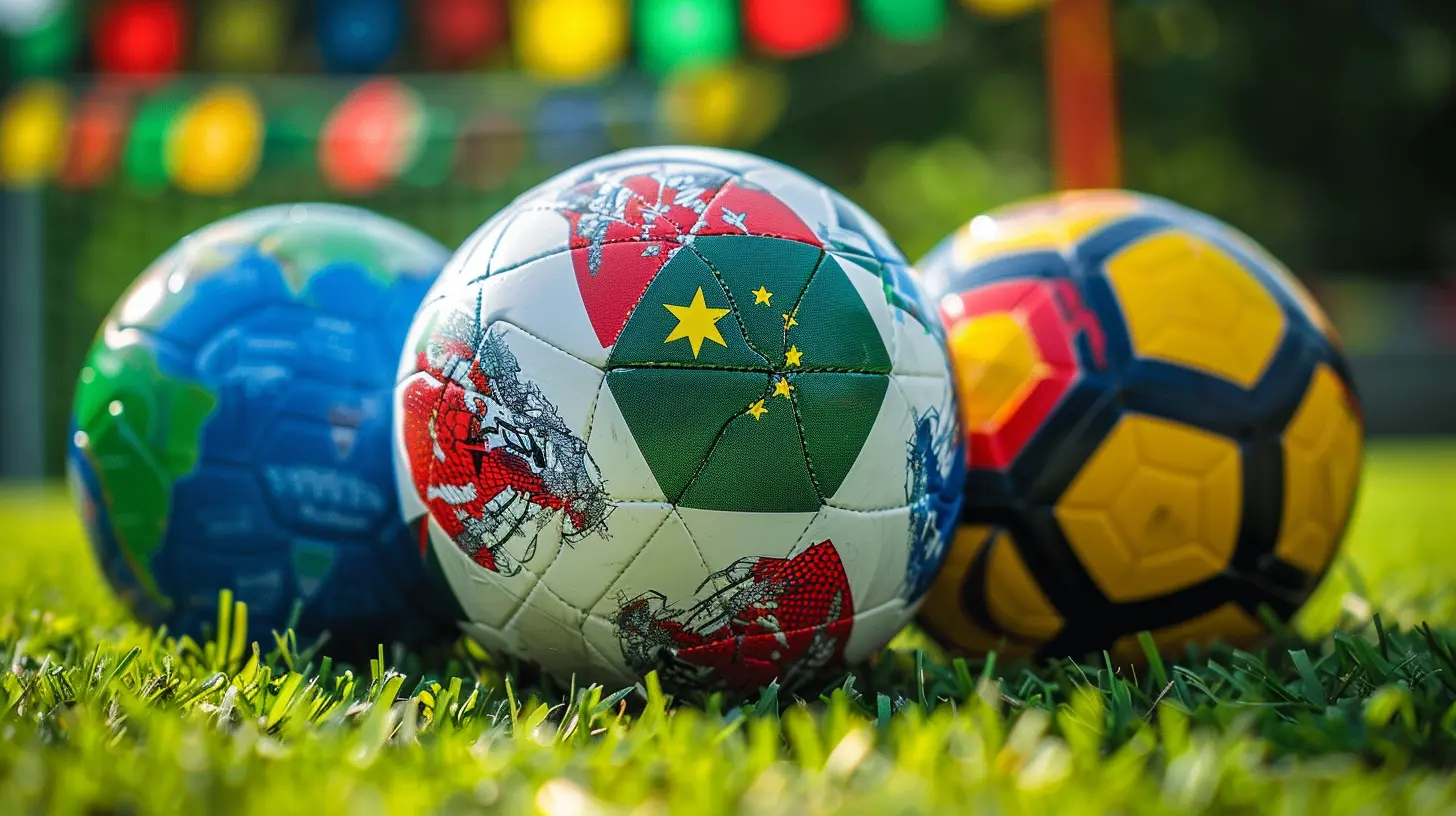How Globalization is Redefining Domestic Sports Leagues
16 July 2025
Globalization is no longer just about trade deals or international politics—it’s reshaping everything, even the games we love. Sports leagues that once had a tight local flavor are now turning into global powerhouses. From the English Premier League to the NBA, domestic competitions are experiencing a major glow-up on the international stage. But what’s really going on behind the scenes?
Grab your jersey and settle in. We're diving deep into how globalization is transforming your favorite sports leagues—and trust me, it’s not just about money (well, not entirely).
The Starting Whistle: What Even is Globalization in Sports?
Let’s keep it simple: globalization in sports means the world’s becoming a smaller playing field. Thanks to tech, travel, and social media, it's now easier than ever to follow a team halfway across the planet, buy a jersey made in another country, and cheer for a player not born anywhere near your hometown.But this shift isn’t just about access, it's about influence. Domestic leagues are looking outward, catering to international audiences just as much—sometimes even more—than their home fans. And that changes everything.
The International Fanbase Boom
Why Are Leagues Going Global?
Easy answer: eyeballs. More fans = more money. But it’s deeper than that. Let’s take the NBA. Back in the '90s, it was a U.S.-centric league. Fast-forward to today—players from Europe, Africa, Asia, and beyond are not just participating, they’re dominating. Think Luka Dončić, Giannis Antetokounmpo, or even Yao Ming’s impact a decade ago.What happened? The NBA shifted focus. They started broadcasting games in multiple languages, playing preseason games globally, and promoting international camps. It didn’t happen overnight, but now, nearly every domestic league wants that same global shine.
The Role of Social Media
Here’s something wild: a teenager in the Philippines might know more about Real Madrid than someone living in Madrid. That’s the power of Instagram, YouTube, and TikTok. Highlights are no longer local; they’re viral.Leagues and teams are tailoring their content for an international audience. Different languages, local references, regional hashtags—you name it. Fans aren’t just watching their hometown heroes; they’re following players’ journeys across the globe.
International Players in Domestic Leagues
From Roster Spots to Brand Ambassadors
Once upon a time, foreign players were rare gems. Now? They're the standard. Take the English Premier League (EPL). Out of hundreds of players, a hefty chunk aren't from England.And it’s not just about skill. These players bring their own fanbases along for the ride. A Japanese midfielder might boost jersey sales in Tokyo. A Nigerian striker? Suddenly, the team’s Instagram is flooded with comments from Lagos. These players are walking, talking brand extensions.
Talent Scouting Without Borders
Clubs are now investing heavily in international scouting networks. There are now academies in Africa funded by French clubs. Brazilian teens being monitored by scouts in Italy. It’s like a global talent treasure hunt, and the winners get not just a great player—but a whole new market of fans.
The Economic Earthquake
Revenue Streams Going Global
Let’s talk money. Domestic leagues used to make bank from ticket sales and local broadcasting rights. Not anymore. Now, they're cashing in on:- International broadcasting deals
- Global merchandise sales
- Overseas sponsorships
- Preseason tours in Asia and the U.S.
Remember when the NFL held regular season games in London? Or when La Liga tried moving a game to Miami? That wasn’t for the local fans—it was for turning the dial up on international revenue.
The Cost of Staying Local
Here’s the flip side: teams that don’t globalize could end up left behind. If they don’t tap into international markets, they miss out on sponsorships and growth. It’s like being the only vendor without an online store in a world gone digital.Even smaller leagues, like Australia’s A-League or India’s ISL, are trying to go global. They're picking up foreign players, streaming games internationally, and even co-branding with European teams.
The Cultural Shift: Local Identity vs Global Appeal
The Identity Tug of War
Here’s the emotional bit: as leagues go global, authenticity sometimes takes a hit. Fans who've backed their local team for decades might feel disconnected when half the players don’t even speak the same language—or when ticket prices spike to pay for superstar signings.It’s like your favorite neighborhood diner turning into a franchise. Sure, it’s shinier and has more options, but did it lose its soul in the process?
Balancing Act: Tradition Meets Expansion
Some leagues get it right. They find ways to celebrate local traditions while growing globally.- Spanish La Liga keeps regional rivalries front and center.
- The NFL still has tailgates and half-time shows despite its international ambitions.
- Premier League clubs wear special kits or organize charity events with local impact, keeping the heart of the sport alive.
It’s a tightrope walk—but it’s possible.
Competitive Dynamics and Talent Distribution
The Super League Controversy
Remember the European Super League fiasco in 2021? A bunch of elite soccer clubs tried breaking away to form an exclusive international competition. The backlash? Swift and brutal. Why? Because fans feared it would destroy the domestic structure they loved and grew up with.That’s globalization going too far—it forgets the grassroots and focuses only on the elite.
The "Big Club" Domination
As more money flows in, big clubs get even richer. That means they can buy the best players, offer massive contracts, and pretty much guarantee success. Smaller clubs? They’re often left scrambling for scraps.This power imbalance is one of the biggest challenges in a globalized sports world. Without fair play, predictability sets in. And let's be honest, no one roots for a league where you always know who’s going to win.
Technology & Accessibility: Watching Sports in the Digital Age
Streaming and Virtual Fandom
You don’t need cable or even a TV to follow sports anymore. Platforms like DAZN, ESPN+, or even Twitter are streaming games live. That breaks barriers and lets fans from countries that never had access before become part of the action.Virtual fan experiences—like AR stats, VR stadium tours, and interactive voting—make the game feel closer, no matter where you are. The "local fan" is now just one type of fan in a much bigger digital stadium.
E-Sports and Cross-League Collabs
Let’s not underestimate e-sports or hybrid events like NBA 2K Leagues or FIFA eWorld Cups. These digital formats are introducing sports to an entirely new generation, many of whom might never watch a full game on TV but will gladly stream online content for hours.Even crossovers, like soccer teams appearing in Call of Duty or Formula 1 drivers in Twitch streams, are blending borders.
The Future: Where's This All Headed?
A New Breed of Fan
Today’s fans aren’t bound by geography. They might support Manchester City in the EPL, the Miami Heat in the NBA, and Tokyo Yakult Swallows in Japanese baseball—all at once.This "multi-team fan" isn’t confused—they’re global. And sports leagues need to keep up by offering more relatable, shareable, and accessible content.
The Rise of Global Hybrid Leagues?
We might eventually see hybrid tournaments where top teams from different countries regularly face off in official competitions. Think NBA vs EuroLeague, or MLS vs Liga MX All-Star leagues becoming full-time.It’s not far-fetched—it’s inevitable.
Wrapping It Up: Is Globalization Good or Bad for Sports?
So, is globalization ruining the authenticity of sports or evolving it into something greater? Honestly, it’s a little of both.Yes, there’s a risk of turning passion-driven leagues into corporate machines. But there's also an opportunity to bring the magic of sports to every corner of the globe. More people caring about the game? That’s a win in my book.
The key is balance. Keep the soul of the sport alive while opening its heart to the world.
Final Thoughts: What Does This Mean For You?
If you’re just a casual viewer, get ready to see more diversity, better competition, and easier access to top-tier sports content. And if you’re a die-hard local fan? Don’t worry—your team may now have fans from Brazil to Bangladesh, but they still need you in the stands, chanting your heart out.Because no matter how far sports go globally, they always start at home.
all images in this post were generated using AI tools
Category:
Sports LeaguesAuthor:

Preston Wilkins
Discussion
rate this article
1 comments
Caden Ross
Globalization in sports: where your local team suddenly has a player from a country you can't even pronounce! It’s like mixing popcorn with caviar—unexpected but surprisingly delightful. Who knew that football could become a world tour, featuring a cast of characters that even Netflix would envy?
August 2, 2025 at 4:27 AM

Preston Wilkins
Absolutely! Globalization brings a vibrant mix of talent to local teams, enriching the experience and making sports feel more like a global celebration. It’s a delightful twist that adds depth to the game!


